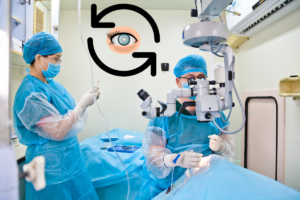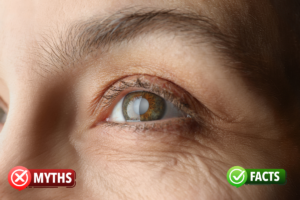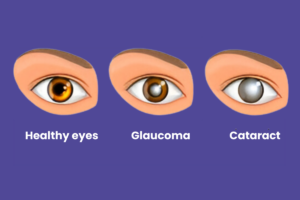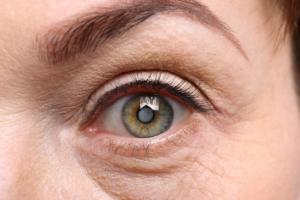How long does it take to recover from cataract surgery?
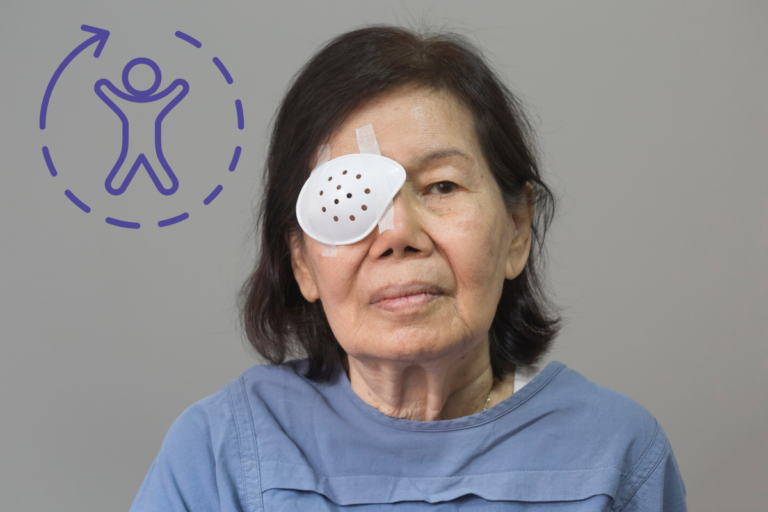
Cataract surgery is one of the most common and effective surgical procedures performed worldwide. While many patients experience improved vision shortly after surgery, understanding the recovery timeline is essential for ensuring a smooth healing process. In this blog, we’ll explore what to expect during your recovery from cataract surgery, including immediate post-operative care, short-term and long-term recovery, and tips for a successful outcome.
What is cataract surgery?
Cataract surgery involves the removal of the cloudy lens of the eye (the cataract) and its replacement with an artificial lens (intraocular lens or IOL). The most common type of cataract surgery is phacoemulsification, where the surgeon uses ultrasound waves to break up the cloudy lens, allowing for its gentle removal. This minimally invasive procedure often results in quicker recovery times compared to traditional extracapsular surgery, where the entire lens is removed at once.
Immediate post-operative recovery (Day of surgery)
After your cataract surgery, you’ll spend some time in the recovery room where medical staff will monitor your vital signs and vision. During this time, you may experience mild discomfort, blurry vision, and light sensitivity. To protect your healing eye, your doctor will provide you with a protective shield or sunglasses.
It’s important to arrange for a caregiver to drive you home after the procedure, as your vision may not be clear enough for you to drive safely. Rest is crucial, and you’ll be advised to avoid any strenuous activities for the first few days.
Short-term recovery (First few days)
Common symptoms & experiences
In the first few days post-surgery, it’s normal to experience:
- Mild discomfort or irritation.
- Blurred vision as the eye heals.
- Increased sensitivity to light.
- Tearing or watery eyes.
Instructions for care
To ensure a smooth recovery, follow these guidelines:
- Use prescribed eye drops: Your surgeon will provide specific instructions regarding eye drops, which may include anti-inflammatory or antibiotic drops to prevent infection and reduce inflammation.
- Avoid strenuous activities: Refrain from heavy lifting, bending over, or vigorous exercise for at least a week.
- Prioritize rest: Give your eyes ample time to heal by resting and avoiding screens when possible.
Recovery timeline (Weeks 1-4)
Week 1
You will have a follow-up appointment with your eye surgeon within the first week. This is crucial for assessing the healing process and ensuring your vision is progressing as expected. Many patients report a noticeable improvement in vision, though some blurriness may persist.
Week 2
As you enter the second week, you may gradually return to normal activities, but avoid activities that could strain your eyes, like reading for extended periods or looking at screens for too long. Monitor any unusual symptoms and report them to your doctor.
Week 3
By the third week, most patients experience significant improvements in their vision. You may begin light exercises or gentle walks, but continue to avoid high-impact activities.
Week 4
The fourth week usually marks a major milestone in recovery. Most patients have a follow-up appointment to assess visual acuity and overall eye health. Many people can return to daily activities fully, enjoying improved vision without the need for glasses.
Long-term recovery (1 month & beyond)
After the first month, your vision will continue to stabilize. Full visual acuity may take up to three months to achieve, so be patient with your healing process. Regular check-ups are essential to monitor your progress and address any concerns.
Factors affecting recovery time
Several factors can influence your recovery time:
- Individual variations: Age, overall health, and pre-existing conditions can all impact healing times.
- Type of lens implanted: The choice between monofocal, multifocal, or toric lenses can affect the recovery experience and outcomes.
- Patient compliance: Following your doctor’s post-operative care instructions is crucial for a successful recovery.
Tips for a smooth recovery
To aid in your recovery, keep these tips in mind:
Dos:
- Follow your doctor’s instructions carefully.
- Use your prescribed eye drops regularly.
- Protect your eyes from bright lights and dust.
Don’ts:
- Avoid rubbing your eyes or touching the surgical site.
- Don’t engage in high-impact sports or heavy lifting until cleared by your doctor.
- Refrain from swimming or using hot tubs for at least two weeks.
When to contact your doctor?
Be aware of the following signs that may indicate complications:
- Sudden changes in vision, such as blurriness or flashes of light.
- Increased pain or discomfort in the eye.
- Signs of infection, including redness, swelling, or discharge.
If you experience any of these symptoms, contact your eye doctor immediately.
Conclusion
Understanding the recovery timeline after cataract surgery is crucial for patients to ensure optimal healing and visual outcomes. While most people see significant improvement within the first few weeks, full recovery can take several months. Be patient and adhere to your doctor’s recommendations for the best results.
For more personalized guidance, reach out to Krisha Eye hospital in Ahmedabad. Our team is here to support you throughout your recovery journey and help you achieve clearer vision.
Author bio
Dr. Dhwani Maheshwari, an esteemed ophthalmologist with over 10 years of experience, leads Krisha Eye hospital in Ahmedabad with a commitment to advanced, patient-centered eye care. Specializing in cataract and refractive surgery, Dr. Maheshwari has performed more than a thousand successful surgeries. Her expertise lies in phacoemulsification, a technique recognized for its precision in cataract treatment.
Dr. Maheshwari’s educational journey includes an MBBS from Smt. NHL MMC, a DOMS from M & J Institute of Ophthalmology, and a DNB in Ophthalmology from Mahatme Eye Bank Eye Hospital, Nagpur. She also completed a fellowship in phacoemulsification at Porecha Blindness Trust Hospital, further enhancing her surgical skills. In addition to her work at Krisha Eye Hospital, Dr. Maheshwari serves as a consultant ophthalmologist at Northstar Diagnostic Centre.
Under her leadership, Krisha Eye Hospital aims to bring all superspecialties under one roof, offering comprehensive eye care solutions for all vision needs.
FAQs
To speed up recovery, follow your doctor’s post-operative care instructions, use prescribed eye drops regularly, avoid strenuous activities, and protect your eyes from irritants.
Many patients can return to work within a few days, depending on the nature of their job and individual healing. Consult your doctor for personalized advice.
In many cases, yes. If your job is not physically demanding and you feel comfortable, you may be able to return to work after three days. Always check with your doctor first.
Yes, some patients may experience changes in vision due to various factors, including age-related conditions or other eye diseases. Regular check-ups are essential for monitoring eye health.
While many patients achieve 20/20 vision shortly after surgery, it may take several weeks to fully stabilize. Full visual acuity can take up to three months to achieve.
Cataract surgery is generally very successful, and the results can last many years. However, some patients may develop secondary cataracts, which can be treated with a simple laser procedure.
Most patients can resume driving within a few days after surgery, but it’s best to consult your doctor for personalized advice.
Yes, many patients may need glasses for reading or distance vision after surgery, depending on the type of lens implanted.
Avoid heavy lifting, vigorous exercise, swimming, and activities that strain your eyes for at least two weeks after surgery.
Yes, some patients experience fluctuations in vision as the eye heals. This typically stabilizes as recovery progresses.
While many patients achieve excellent vision post-surgery, some may still need glasses for specific tasks, depending on the type of lens used.











